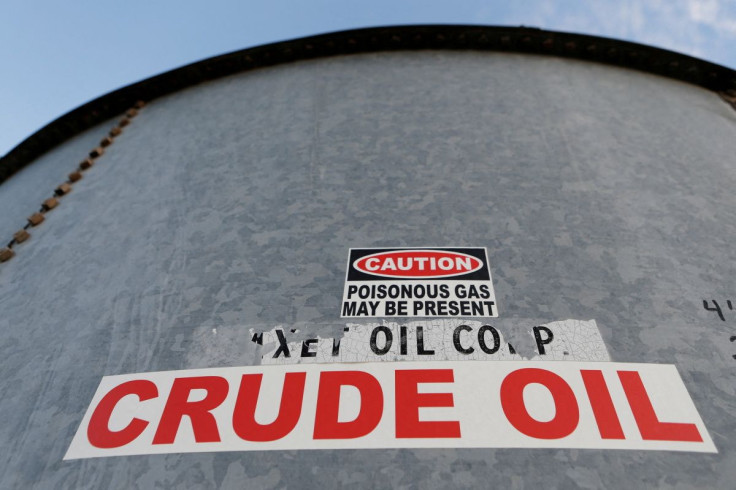Oil Slips On Global Economic Concerns, Ahead Of EU Vote On Russia Oil Ban

Oil prices slipped on Monday, along with stock markets in Asia, sparked by fears a global recession could dampen oil demand, with investors eying European Union talks on a Russian oil embargo that is expected to tighten global supplies.
Brent crude dropped 28 cents, or 0.3%, to $112.11 a barrel by 0153 GMT.
U.S. West Texas Intermediate crude was at $109.36 a barrel, down 41 cents, or 0.4%.
"The broader risk-off sentiment sparked by the recession fears, and China's lockdowns are the major factors that pressure the oil price," CMC Markets analyst Tina Teng said.
Global financial markets are also spooked by concerns over interest rate hikes and extended COVID-19 lockdowns in China that are hurting the world's No. 2 economy.
"China's ongoing lockdowns could continue to weigh on the near-term oil prices," Teng said. A price cut by Saudi Arabia also reflected worries over global oil demand, she said.
Saudi Arabia, world's top oil exporter, lowered crude prices for Asia and Europe for June on Sunday.
Last week, Brent and WTI rose for the second straight week on supply concerns after the European Commission proposed a phased embargo on Russian oil as part of its toughest-yet package of sanctions over the conflict in Ukraine. The proposal requires a unanimous vote among EU members.
Bulgaria's Deputy Prime Minister said late on Sunday, though, that the country will veto EU oil sanctions on Russia if it does not get a derogation from the proposed embargo.
"The talks will continue tomorrow, on Tuesday too, a meeting of the leaders may be needed to conclude them. Our position is very clear. If there be a derogation for some of the countries, we want to get a derogation too," Vassilev told national BNT television.
Bulgaria had earlier said it would seek an exemption from the proposed Russian oil ban if such opt-outs were allowed, but it was not clear if it was seeking a full exemption or a delay similar to the one proposed on Friday for Hungary, Slovakia and the Czech Republic.
The exemptions "will definitely make the sanctions less affective," Teng said.
On Sunday, G7 nations pledged to ban or phase out Russian oil imports, and Washington imposed new sanctions against Gazprombank executives and other businesses.
Japan, part of G7 and one of the world's top five crude importers, will ban Russian crude imports "in principle", Prime Minister Fumio Kishida said on Sunday.
© Copyright Thomson Reuters 2024. All rights reserved.




















